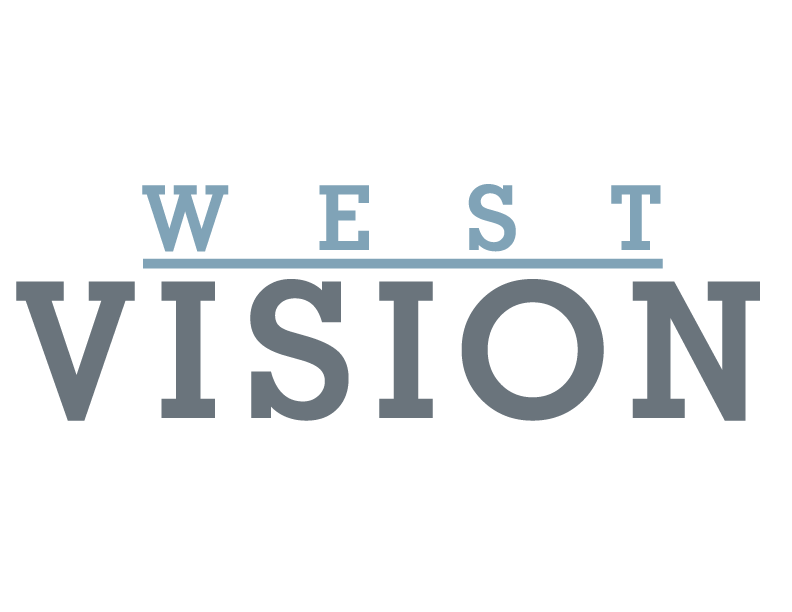Eye Exams
Comprehensive Eye Exams
Having your eyes examined annually is one of the most responsible things you can do for your health! At West Vision, we do more than just determine your prescription for glasses and contacts. We also thoroughly examine the eye for common eye diseases such as glaucoma, macular degeneration, keratoconus, and dry eyes. Early detection of these eye diseases is imperative for sustaining eye health and your overall well-being.
We will assess how your eyes work together as a team, and evaluate your eyes as an indicator for your overall health. With the aid of advanced instrumentation, many eye related diseases, such as diabetes and high blood pressure, can be diagnosed and treated before having any impact on your vision.
Treatment of Eye Diseases
Dr. West and Dr. Fisher will examine your eyes thoroughly to diagnose, treat, and manage your eye disease(s). Whether you have diabetic retinopathy, glaucoma, cataracts, or macular degeneration, we’re here to help keep your visual system healthy and your eyesight as sharp as possible!
Contact Lens Examination
At West Vision, we believe in creating comfortable, clear vision with contact lenses. We offer a wide variety of lenses to fit different patient needs: soft contacts including daily disposable and bifocal lenses, specialty lenses including gas permeable, hybrid lenses and scleral lenses. We treat people for Keratoconus and irregular corneas, and know how to file for medically necessary contact lenses. Dr. West and Dr. Fisher enjoy finding the best solution for each patient: their passion is helping people see better!
Pediatric Eye Care
Healthy vision is one of the most important components of your child’s wellness.
Vision develops rapidly starting at birth and is tied to many developmental milestones, such as hand-eye coordination and reading. In the long term, your child’s vision will impact how they learn, play, and interact with the world.
While there may be some obvious signs of visual disorders, many vision problems can only be detected by a qualified eye doctor during a comprehensive eye exam.
Schedule an appointment at West Vision, and give your child the gift of clear vision.
Is your child having trouble seeing?
It is not always easy to spot vision problems in kids.
Some symptoms are more obvious, like squinting or holding reading materials very close. But often the early signs are subtle and can even be misdiagnosed.
Your child may be experiencing a vision problem if he or she does any of the following:
Avoids reading and close-up work like coloring or doing puzzles
Seems to work slow or not understand the task
Complains of fatigue or headaches
Has a short attention span or seems distracted
Covers one eye or tilts head when focusing on something
Shows sensitivity to light
Exhibits difficulty with coordination
Common eye disorders in children
Vision can be affected by many things, including the shape of the eyeball, how the eyes and brain work together, and by other diseases or medical conditions. The good news is that many eye disorders can be successfully identified and treated.
The most common eye disorders are caused by the shape and alignment of the eyes, including:
Strabismus is when the eyes do not align properly. This is often referred to as “crossed eyes.”
Amblyopia is poor vision in one eye, and is sometimes referred to as “lazy eye.” It usually occurs before the age of eight. Infants born prematurely or with low birth weight are at greater risk.
Refractive errors cause blurry images due to the shape of the eyeball or lens. These common conditions are easily treated with glasses or contact lenses. There are three types of refractive errors:
Myopia or nearsightedness is good close vision but poor distance vision.
Hyperopia or farsightedness is poor up-close vision. Distant objects can easily be seen.
Astigmatism is imperfect vision at any distance.
Eye exam schedule for kids
Routine eye exams are a crucial part of your child’s well being and readiness for learning. Many parents do not know that school screenings are not the same as eye exams. Even with 20/20 vision, your child can still have problems that only an eye doctor can detect.
Newborns have their eyes checked before leaving the hospital. And leading medical organizations recommend comprehensive eye exams for health, vision development, and alignment at these ages:
Between 6 and 12 months
3 years of age
Every other year throughout the school years





